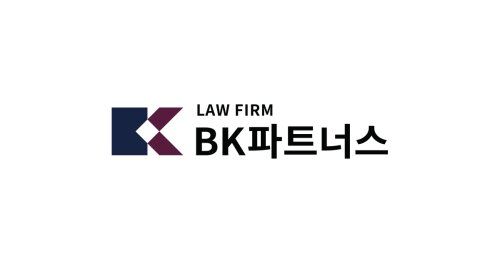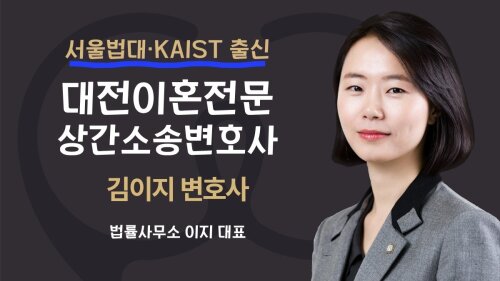Best ADR Mediation & Arbitration Lawyers in Seo-gu
Share your needs with us, get contacted by law firms.
Free. Takes 2 min.
List of the best lawyers in Seo-gu, South Korea
About ADR Mediation & Arbitration Law in Seo-gu, South Korea
Alternative Dispute Resolution, commonly referred to as ADR, includes processes such as mediation and arbitration that aim to resolve disputes without going to court. In Seo-gu, South Korea, ADR is increasingly being used as a way to save time, expenses, and preserve business or personal relationships. The legal framework for ADR in South Korea is robust, offering parties the choice to resolve civil, commercial, and some administrative disputes through mediated settlements or binding arbitration awards. Local law encourages the use of ADR as an efficient and harmonious mechanism for dispute resolution.
Why You May Need a Lawyer
There are many situations where people in Seo-gu may require legal help with mediation and arbitration:
- You are involved in a business or personal dispute and want to avoid lengthy court proceedings
- You need to draft or interpret an agreement that has a mediation or arbitration clause
- You are unsure about your rights or obligations in an existing ADR process
- You have received notice to participate in mediation or arbitration and need legal representation
- You wish to enforce or challenge an arbitration award or mediation agreement in court
- You are facing cross-border or international disputes with parties outside of Korea
- You want guidance on the best dispute resolution option for your situation
Local Laws Overview
In Seo-gu, as throughout South Korea, ADR is governed primarily by national laws such as the Arbitration Act and Civil Mediation Act. The Arbitration Act aligns with the UNCITRAL Model Law, offering a recognized legal basis for domestic and international arbitration. The Civil Mediation Act provides procedures for both court-annexed and private mediation. Courts in Seo-gu often encourage parties to attempt mediation before proceeding to trial. Additionally, several accredited institutions, such as the Korea Commercial Arbitration Board, facilitate ADR services locally.
Key aspects include:
- Arbitration clauses in contracts are generally enforceable
- Mediation can be voluntary or court-referred
- Arbitration awards are final and binding, with limited grounds for challenge
- Confidentiality protections for parties in both mediation and arbitration
- Access to professional mediators and arbitrators with language and subject-matter expertise
Frequently Asked Questions
What is the difference between mediation and arbitration?
Mediation involves a neutral third party helping the disputing sides reach a mutually agreeable solution, but the outcome is not binding unless both parties agree. Arbitration is more formal, and the arbitrator makes a binding decision after reviewing evidence and arguments.
Is ADR legally recognized in Seo-gu and South Korea?
Yes, both mediation and arbitration are legally recognized methods of resolving disputes. Local courts and governmental agencies strongly support ADR for civil and commercial disputes.
When can I use ADR instead of going to court?
You can generally use ADR for most disputes unless prohibited by law, such as some criminal or family matters. Many contracts require parties to attempt ADR before litigation.
How are mediators and arbitrators selected?
Parties can agree on who will serve as a mediator or arbitrator. If they cannot agree, institutions such as the Korea Commercial Arbitration Board can appoint a neutral professional.
Are ADR proceedings confidential?
Yes, confidentiality is a foundational principle in both mediation and arbitration. However, there are exceptions if disclosure is required by law or for enforcement of an award.
Can I have a lawyer represent me in ADR proceedings?
Yes, parties are allowed and often advised to have legal representation to ensure their interests are protected throughout ADR processes.
How long does ADR typically take?
ADR is generally faster than court cases. Mediation may resolve within a few weeks or months. Arbitration can take a few months up to a year, depending on the complexity of the case.
Are mediation agreements and arbitration awards enforceable?
Mediation agreements can be made legally binding if properly documented and sometimes confirmed by a court. Arbitration awards are binding and enforceable through Korean courts.
How much does ADR cost?
Costs vary depending on the institution, complexity, and professionals involved. Generally, ADR is less expensive than litigation due to faster resolution and reduced legal fees.
What if I am unsatisfied with the outcome of ADR?
If the outcome of mediation is not acceptable, you are not obligated to agree and can still go to court. Arbitration awards are usually final, but there are limited circumstances under which you can request a court to set aside the decision.
Additional Resources
If you need more support regarding mediation and arbitration in Seo-gu, consider the following resources:
- Korea Commercial Arbitration Board (KCAB) - Korea's premier arbitration institution, offering services in multiple languages
- Seo-gu District Court Mediation Center - Offers court-annexed mediation services for civil matters
- Busan Bar Association - Provides referrals to experienced ADR lawyers in Seo-gu
- Korean Ministry of Justice - Offers guidance on the national framework for ADR
- Local Legal Aid Centers - For those who require financial assistance for legal services
Next Steps
If you think ADR may be appropriate for your dispute or if you have received notice to participate in mediation or arbitration:
- Review the relevant documents or contracts for dispute resolution clauses
- Consider discussing your situation with a qualified ADR lawyer in Seo-gu
- Contact local institutions such as the Korea Commercial Arbitration Board or the Seo-gu District Court for guidance on how to initiate proceedings
- Prepare all necessary documentation and information regarding your dispute
- Ensure you understand the process, possible outcomes, and obligations before agreeing to any settlement or arbitration clause
Taking early legal advice can save you time, money, and stress. If in doubt, consult with a local attorney specializing in ADR to guide you through every step of the process.
Lawzana helps you find the best lawyers and law firms in Seo-gu through a curated and pre-screened list of qualified legal professionals. Our platform offers rankings and detailed profiles of attorneys and law firms, allowing you to compare based on practice areas, including ADR Mediation & Arbitration , experience, and client feedback.
Each profile includes a description of the firm's areas of practice, client reviews, team members and partners, year of establishment, spoken languages, office locations, contact information, social media presence, and any published articles or resources. Most firms on our platform speak English and are experienced in both local and international legal matters.
Get a quote from top-rated law firms in Seo-gu, South Korea — quickly, securely, and without unnecessary hassle.
Disclaimer:
The information provided on this page is for general informational purposes only and does not constitute legal advice. While we strive to ensure the accuracy and relevance of the content, legal information may change over time, and interpretations of the law can vary. You should always consult with a qualified legal professional for advice specific to your situation.
We disclaim all liability for actions taken or not taken based on the content of this page. If you believe any information is incorrect or outdated, please contact us, and we will review and update it where appropriate.









